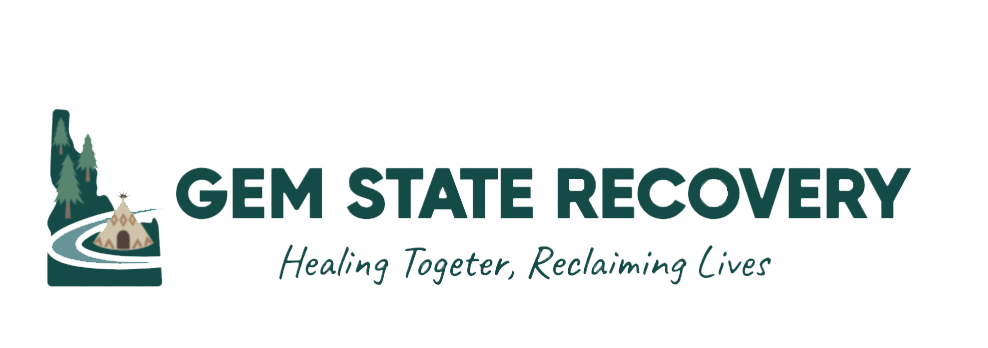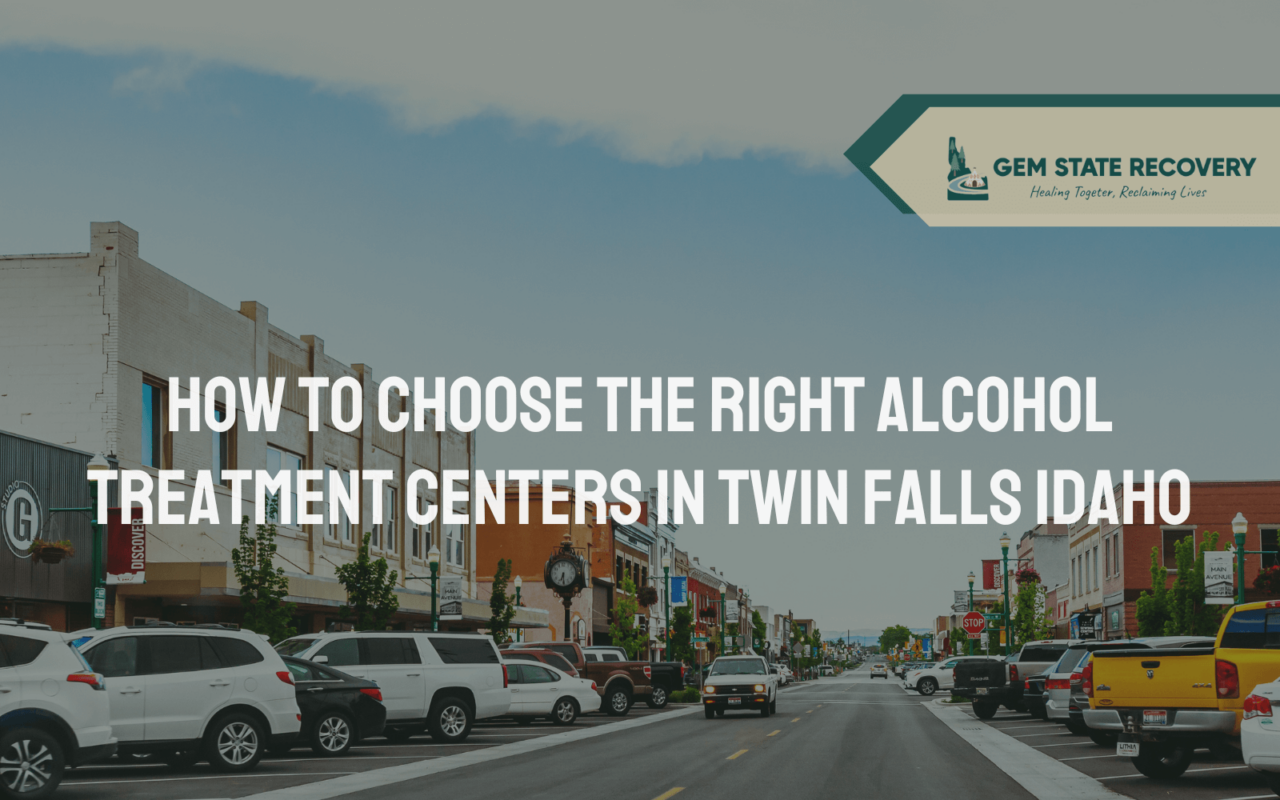Finding the right help for alcohol addiction can be one of the most important decisions of your life—or that of someone you love. Whether you’re just starting to explore your options or you’ve tried treatment before, navigating the many programs available can feel confusing and overwhelming. Fortunately, if you’re looking for alcohol treatment centers in Twin Falls Idaho, you’re in a region with a supportive, recovery-focused community and quality treatment options. But how do you know which one is right for you?
At Gem State Recovery, we know the value of connection, honest support, and practical guidance. In this comprehensive guide, we’ll walk through the essential steps and considerations for choosing the best alcohol rehab center in Twin Falls, including types of care, key features to look for, red flags to avoid, and how to personalize your treatment for long-term success.
Why Choosing the Right Treatment Center Matters
Alcohol addiction isn’t just about drinking too much. It’s about how alcohol affects your brain, your emotions, your relationships, and your future. A poorly matched program can make recovery more difficult, while the right fit can accelerate healing, build lasting habits, and restore your sense of self. That’s why selecting from the best alcohol treatment centers in Twin Falls Idaho, is about more than convenience—it’s about effectiveness.
No two treatment centers are exactly alike. Some specialize in inpatient care; others offer outpatient services, experiential therapies, dual diagnosis treatment, or faith-based approaches. By understanding what each center provides and how it aligns with your specific needs, you can make an informed and confident decision.
Step 1: Understand Your Treatment Needs
Before diving into treatment options, it’s helpful to clarify what kind of care you’re looking for. Ask yourself or your loved one:
- Is medical detox needed? If alcohol withdrawal symptoms are severe or dangerous, a medically supervised detox is a must.
- Are there co-occurring mental health disorders? Conditions like depression, PTSD, or anxiety require a dual diagnosis approach.
- Is 24/7 supervision necessary? Some individuals benefit from residential programs for structure and accountability.
- Do you need to stay local? If Twin Falls is your home or support system, local care may enhance outcomes.
By identifying your specific needs early on, you can focus only on those alcohol treatment centers in Twin Falls Idaho, that offer the right level of support and services.
Step 2: Learn the Types of Alcohol Treatment Programs
Twin Falls offers a variety of recovery settings tailored to meet different needs. Here’s a detailed breakdown of the most common levels of care:
1. Detox Programs
Detox programs provide medical supervision to safely manage withdrawal symptoms, which can often be uncomfortable or even dangerous without proper care. These programs ensure that individuals can start their recovery journey on a stable and safe foundation. Many alcohol treatment centers in Twin Falls Idaho, offer detox services either onsite or through partnerships with specialized facilities. The process typically includes monitoring vital signs, administering medications if needed, and offering emotional support to ease the transition into sobriety.
2. Inpatient/Residential Treatment
Inpatient or residential treatment programs are ideal for individuals who require highly structured, 24/7 care in a supportive and controlled environment. These programs typically last between 30 and 90 days, depending on individual needs, and include a variety of therapeutic approaches such as one-on-one therapy, group counseling, and life skills training. This level of care is particularly beneficial for those with severe alcohol use disorders or co-occurring mental health conditions, as it removes them from everyday triggers and allows them to focus entirely on recovery.
3. Partial Hospitalization Programs (PHP)
Partial hospitalization programs (PHPs) provide a high level of care while allowing clients to maintain some independence. Clients attend intensive therapy sessions during the day—usually five days a week for several hours per day—and then return home or to a sober living facility at night. PHPs are a great option for those who need significant support but do not require 24/7 care. These programs often include individual therapy, group therapy, and holistic approaches like mindfulness or fitness activities to promote overall well-being.
4. Intensive Outpatient Programs (IOP)
Intensive outpatient programs (IOPs) offer a flexible treatment option for individuals who need structured care but also need to balance work, school, or family responsibilities. IOPs typically involve therapy sessions scheduled in the evenings or on weekends, making it easier for clients to integrate treatment into their daily lives. These programs often include individual counseling, group support, relapse prevention planning, and education on coping skills to help maintain long-term sobriety. IOPs are an excellent step-down option for those transitioning from inpatient care or PHP.
5. Outpatient Services
Standard outpatient programs are best suited for individuals with mild to moderate alcohol use disorders who are able to manage their recovery while maintaining work, family, or other daily responsibilities. These programs are less intensive than IOPs and typically involve weekly therapy sessions, either one-on-one or in a group setting. Outpatient services are also a great long-term option for those who have completed higher levels of care and want ongoing support to prevent relapse and sustain their recovery journey.
When comparing alcohol treatment centers in Twin Falls Idaho, it’s important to consider what levels of care they offer and how easy it is to transition between levels as your needs change. A flexible program that allows clients to step up or down in intensity as needed can make a significant difference in maintaining long-term recovery success.

Step 3: Look for Accreditation and Licensing
One of the simplest and most important ways to ensure you’re choosing a reputable facility is by thoroughly checking its credentials. Reputable alcohol treatment centers in Twin Falls Idaho, will typically have the following qualifications:
- Licensed by the state of Idaho: This ensures the facility operates under the guidelines and regulations set by the state, providing a baseline standard for safety and care.
- Accredited by national organizations: Look for accreditations from respected bodies like The Joint Commission (JCAHO) or the Commission on Accreditation of Rehabilitation Facilities (CARF). These accreditations show that the center has met stringent requirements and is committed to maintaining high standards of safety, care quality, and treatment outcomes.
Taking the time to verify these credentials provides peace of mind and ensures that you or your loved one will receive effective and evidence-based care in a safe and supportive environment.
Step 4: Evaluate the Staff and Clinical Team
The people behind the program are just as important as the treatment plan itself. Make sure the treatment center employs:
- Licensed clinicians (LCSWs, LPCs, psychologists, psychiatrists)
- Experienced addiction counselors
- Medical professionals for detox and medication management
- Support staff trained in trauma-informed care and recovery coaching
High-quality alcohol treatment centers in Twin Falls Idaho, will proudly display their team members’ credentials and experience. Don’t hesitate to ask about staff-to-client ratios, background checks, and ongoing professional training.
Step 5: Explore the Therapies Offered
Effective alcohol treatment requires more than just talking—it requires action. Leading alcohol treatment centers in Twin Falls Idaho, use evidence-based therapies to help individuals understand the root causes of addiction and build healthier coping strategies.
Look for centers that offer:
- Cognitive Behavioral Therapy (CBT)
- Dialectical Behavior Therapy (DBT)
- Motivational Interviewing
- Trauma therapy (EMDR, somatic experiencing)
- Family therapy
- Group and peer support
- 12-Step or alternative recovery models
- Experiential therapy (art, music, outdoor, equine)
Ask how therapy is delivered—individually, in groups, or both—and how progress is measured throughout the program.
Step 6: Check for Dual Diagnosis Treatment
If you’re struggling with both alcohol addiction and a mental health condition, seeking dual diagnosis care is absolutely essential. Many individuals facing alcohol addiction also deal with underlying mental health conditions such as anxiety, depression, bipolar disorder, PTSD, or ADHD. These co-occurring issues are deeply interconnected, and treating one without addressing the other often leads to incomplete recovery or relapse.
Dual diagnosis alcohol treatment centers in Twin Falls Idaho, specialize in treating both the addiction and the mental health disorder simultaneously. By offering integrated care, these centers significantly improve long-term recovery outcomes, as addressing the root causes of both conditions enhances the overall effectiveness of treatment. If a treatment center does not provide dual diagnosis care and you know you need it, it’s important to see that as a deal-breaker and continue searching for a facility that can meet your needs. Comprehensive care is key to achieving lasting sobriety and mental wellness.
Step 7: Ask About Aftercare Planning
Recovery doesn’t end when the program does. A solid aftercare plan is essential for maintaining sobriety. The best alcohol treatment centers in Twin Falls Idaho, will help you transition into:
- Sober living homes
- Outpatient therapy or IOP
- Support groups (12-Step, SMART Recovery)
- Ongoing medical or psychiatric care
- Employment or life skills coaching
Aftercare should be included in your initial treatment plan and customized as your needs evolve.
Step 8: Understand Costs and Insurance Coverage
Finances should never be a barrier to recovery, but it’s wise to understand what you’ll be expected to pay. Most alcohol treatment centers in Twin Falls Idaho, accept major insurance plans, Medicaid, or offer sliding-scale fees.
Ask:
- What’s covered by insurance?
- Are payment plans available?
- What out-of-pocket costs can I expect?
- Is financial aid offered?
Transparency around costs is a hallmark of a trustworthy facility.
Step 9: Consider Location and Environment
Twin Falls offers a unique backdrop for recovery, with its scenic beauty, waterfalls, and calm community vibe. Being in a supportive and peaceful environment can significantly impact your emotional well-being during treatment.
When choosing among alcohol treatment centers in Twin Falls Idaho, consider:
- Is the setting peaceful and healing?
- Are outdoor activities or recreational therapy included?
- Is family nearby to offer support?
While environment isn’t everything, it can enhance the treatment experience.
Step 10: Read Reviews and Speak with Alumni
Personal stories and client testimonials can offer real-world insight into a program’s quality. Search for reviews of alcohol treatment centers in Twin Falls Idaho, on Google, Yelp, or recovery forums.
If possible, ask the center to connect you with alumni. Speaking to someone who’s been through the program can provide clarity on what to expect and whether it aligns with your goals.
Step 11: Ask the Right Questions
Once you’ve narrowed your list, contact the centers directly and ask:
- How long is your program?
- What’s your success rate?
- Do you offer family therapy or involvement?
- Can you support clients with legal, employment, or housing issues?
- What does a typical day look like?
The way a center answers these questions will help you gauge their transparency, culture, and commitment to client care.
Red Flags to Watch Out For
Not all treatment centers are created equal. Here are a few warning signs:
- Promises of a “quick cure” or guaranteed sobriety
- No clinical staff listed or visible credentials
- Pushy sales tactics or unclear pricing
- Lack of individualized care plans
- High staff turnover or poor reviews
The best alcohol treatment centers in Twin Falls Idaho, won’t hesitate to answer tough questions, explain their methods, and involve you in your care decisions.
What Makes Twin Falls Ideal for Recovery?
Twin Falls offers a unique combination of natural beauty, community support, and access to high-quality care. Whether you’re a long-time resident or new to the area, Twin Falls can be a calming and inspiring place to begin or continue your recovery journey.
Some alcohol treatment centers in Twin Falls Idaho, also take advantage of the local landscape to incorporate hiking, river activities, and nature therapy into their programs—an approach that’s shown to improve mental health and reduce stress.
Final Thoughts: You Deserve the Right Fit
Choosing the right alcohol treatment center is about more than just finding the nearest facility. It’s a deeply personal decision that requires matching your unique needs with a program designed to support, challenge, and empower your journey toward long-term recovery. For more information, visit our website https://gemstaterecovery.com/ or call us at (208) 314-3107.





